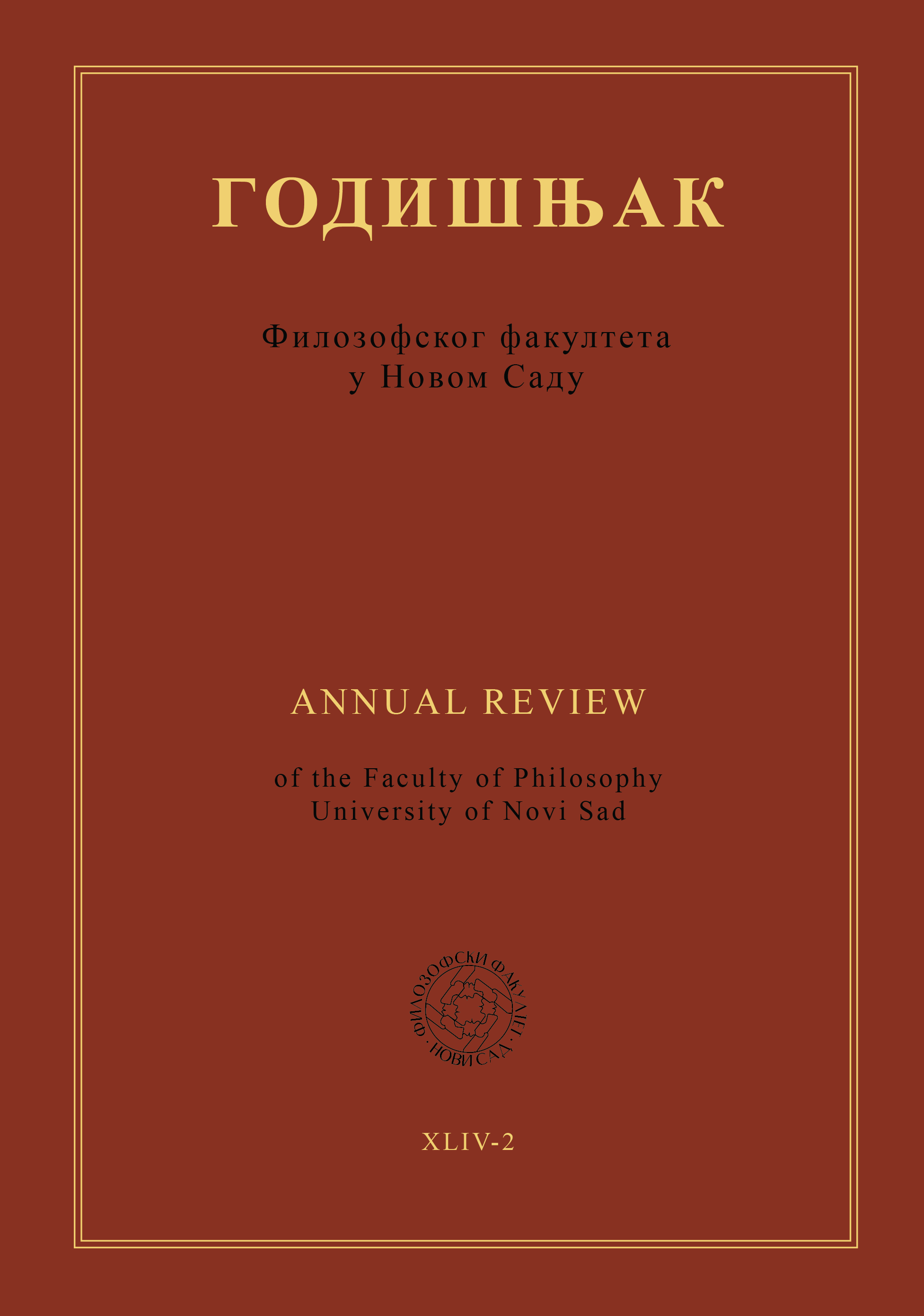NIČEOVA FILOZOFIJA I ISKUSTVO STRANOG: DIONIS I TRUBADUR
NIETZSCHE’S PHILOSOPHY AND THE EXPERIENCE OF THE FOREIGN:
DIONYSOS AND TROUBADOUR
On the artistic origin of the scientific spirit
Author(s): Dragan ProleSubject(s): Philosophy
Published by: Филозофски факултет, Универзитет у Новом Саду
Keywords: Nietzsche; Troubadour; Dionysos; Experience of Foreign; Joyfulness
Summary/Abstract: Nietzsche’s experience of the foreign is based on the absolution from his own individuality, made possible by means of excessive self-immersion into one representation. In his philosophy, contact with the foreign explicitly identified with artistic pleasure, which assumes a complete unification with the illusion. Along with Zaratustra, the examples of illusion originating in the foreign world, with which Nietzsche identified himself, are undoubtedly Dionysos, a tragic man and a provencal troubadour. Dionysos’ name stands for a specific conceptual figure which helped Nietzsche, in an almost theatrical interplay between his characters, to stage the continuing contemporary need for transgression, to abandon the established and stable in search for the unestablished and unstable. One of the inevitable strange alternative therapies was offered by Nietzsche’s concept of joyfulness to confront “European nihilism”. Paradoxically, one of the greatest criticism of optimism introduces joyfulness as a decisive mark of the learned. When a medieval troubadour becomes a free spirit, the legacy of the past merges with what is yet to come, it becomes one with the key therapist of the future. The author concludes that the combination of the historical and the fictional in Nietzsche’s philosophy creates a puzzle whose solution seems more appealing and promising than anything else we have experienced and become aware of thus far.
Journal: Годишњак Филозофског факултета у Новом Саду
- Issue Year: 44/2019
- Issue No: 2
- Page Range: 209-223
- Page Count: 15
- Language: Serbian

